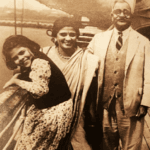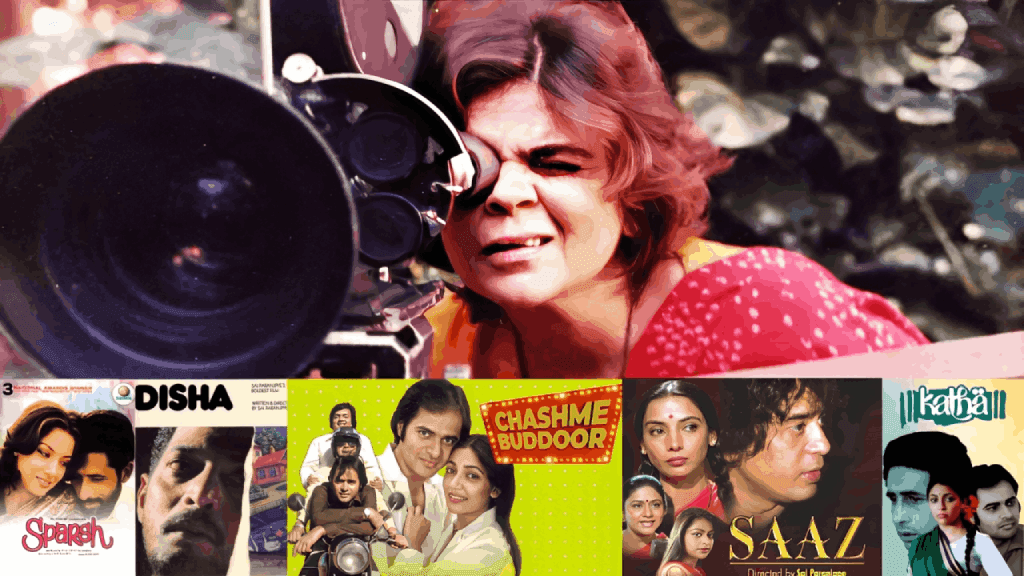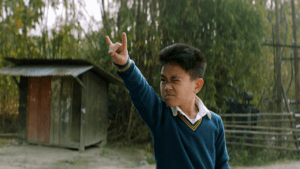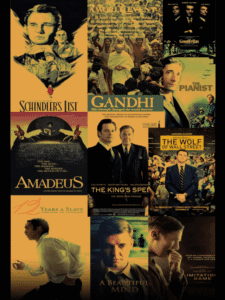Crafting Classics: The Cinematic Journey of Sai Paranjpye
Sai Paranjpye is synonymous with cinematic brilliance. Her journey from an imaginative storyteller to one of India’s most celebrated filmmakers reads like an enthralling adventure.

Born on March 19, 1938, in a culturally enriched environment, Sai Paranjpye had the arts woven into her very DNA. Her father, Youra Sleptzoff, was a talented Russian watercolor artist, and her mother, Shakuntala Paranjpye, was a multifaceted actress and writer. This confluence of artistic influences nurtured Sai’s innate creativity and curiosity from a young age.
Even as a child, Sai demonstrated a prodigious talent for storytelling, penning her first book of fairy tales, “Mulānchā Mewā,” at just 8 years old. Pursuing her passion further, she graduated from the prestigious National School of Drama (NSD) in 1963. Sai’s career began to flourish at All India Radio (AIR) in Pune, where she honed her narrative skills. Her significant breakthrough came with Doordarshan, India’s national broadcaster. In 1972, she directed “The Little Tea Shop,” which won an award at the Asian Broadcasting Union in Tehran, marking her impressive entry into the realm of filmmaking.
From ‘Sparsh’ to ‘Chashme Buddoor’: Iconic Films that Defined an Era
 Sai Paranjpye’s films are a remarkable blend of emotional depth and humor. “Sparsh” (1980), a poignant portrayal of the lives of visually impaired individuals, won three National Film Awards. “Chashme Buddoor” (1981), an evergreen romantic comedy, remains a beloved classic. In “Katha” (1982), she brilliantly adapted folklore to navigate modern themes, showcasing her exceptional ability to blend tradition with contemporary narratives. “Disha” (1990) explores the socio-economic challenges faced by rural migrants, exemplifying her commitment to socially relevant issues.
Sai Paranjpye’s films are a remarkable blend of emotional depth and humor. “Sparsh” (1980), a poignant portrayal of the lives of visually impaired individuals, won three National Film Awards. “Chashme Buddoor” (1981), an evergreen romantic comedy, remains a beloved classic. In “Katha” (1982), she brilliantly adapted folklore to navigate modern themes, showcasing her exceptional ability to blend tradition with contemporary narratives. “Disha” (1990) explores the socio-economic challenges faced by rural migrants, exemplifying her commitment to socially relevant issues.
 Sai Paranjpye’s illustrious career has been adorned with numerous accolades. She was awarded the Padma Bhushan in 2006, one of India’s highest civilian honors, for her exceptional contribution to the arts. Her documentary “Choodiyan” (1993), addressing critical social issues, won the National Film Award for Best Film on Social Issues. Her repertoire also includes multiple prestigious Filmfare Awards and international recognitions at various renowned film festivals.
Sai Paranjpye’s illustrious career has been adorned with numerous accolades. She was awarded the Padma Bhushan in 2006, one of India’s highest civilian honors, for her exceptional contribution to the arts. Her documentary “Choodiyan” (1993), addressing critical social issues, won the National Film Award for Best Film on Social Issues. Her repertoire also includes multiple prestigious Filmfare Awards and international recognitions at various renowned film festivals.
Impact and Legacy: Continuing to Inspire the Next Generation
Paranjpye’s storytelling, imbued with wit, warmth, and wisdom, has left an unforgettable mark on Indian cinema. Her films continue to inspire and shape new generations of filmmakers, solidifying her lasting impact and influence in the industry.

























